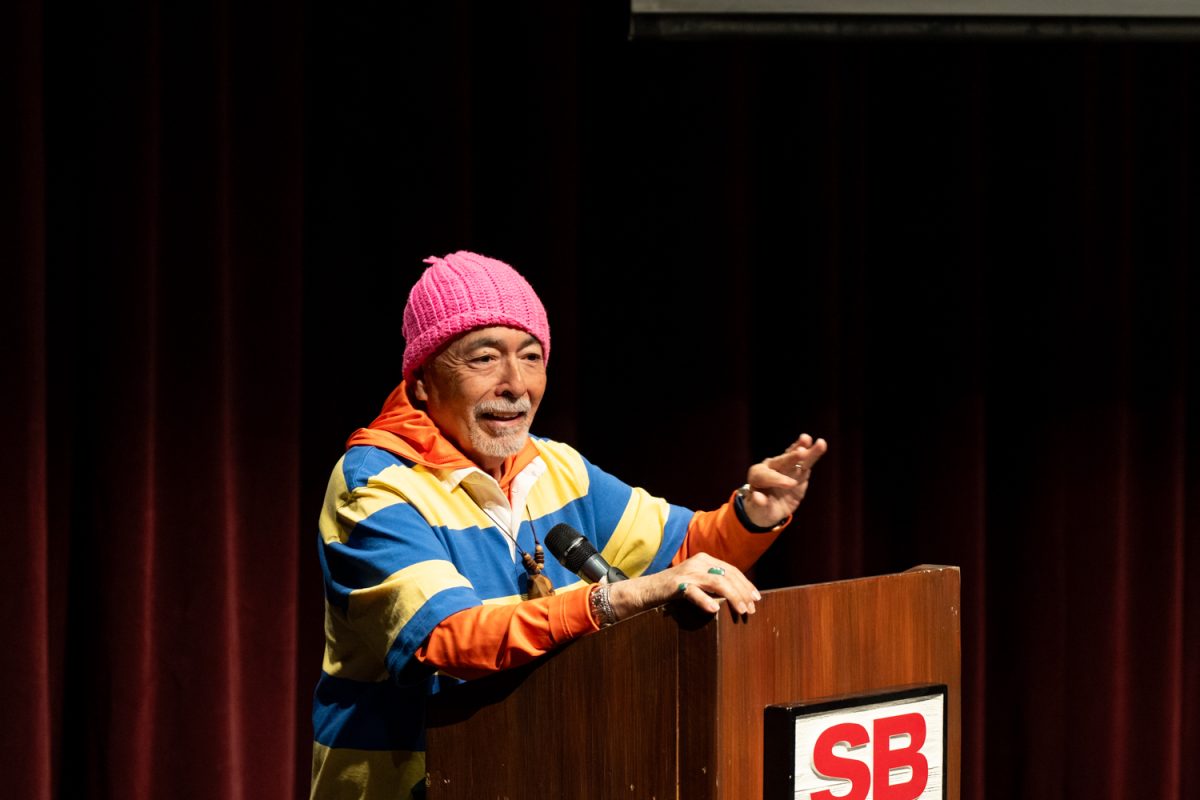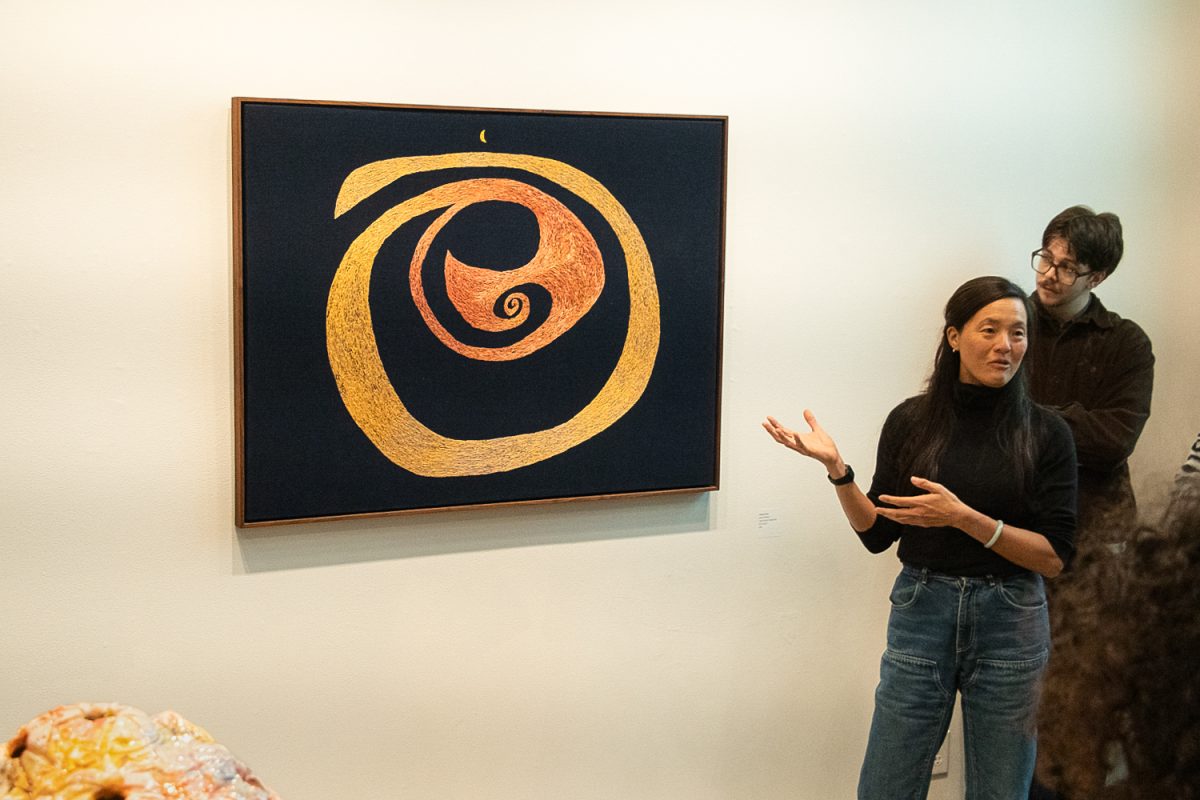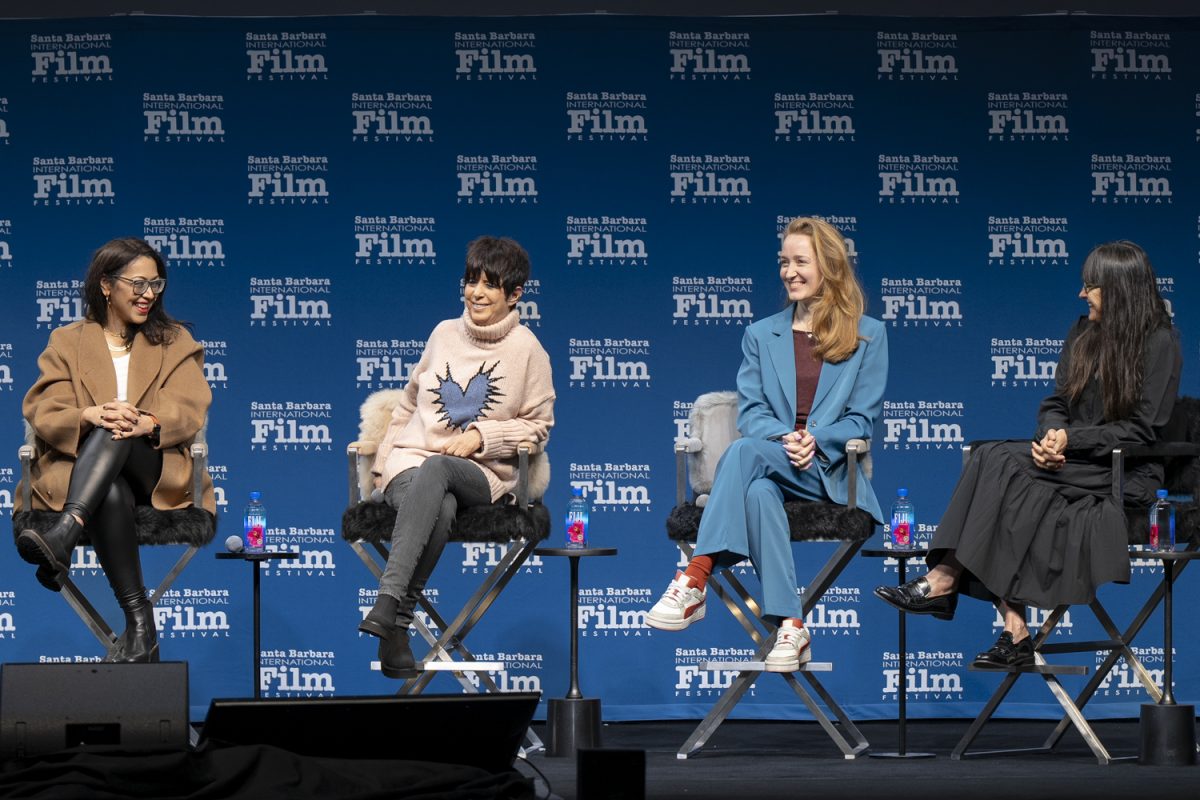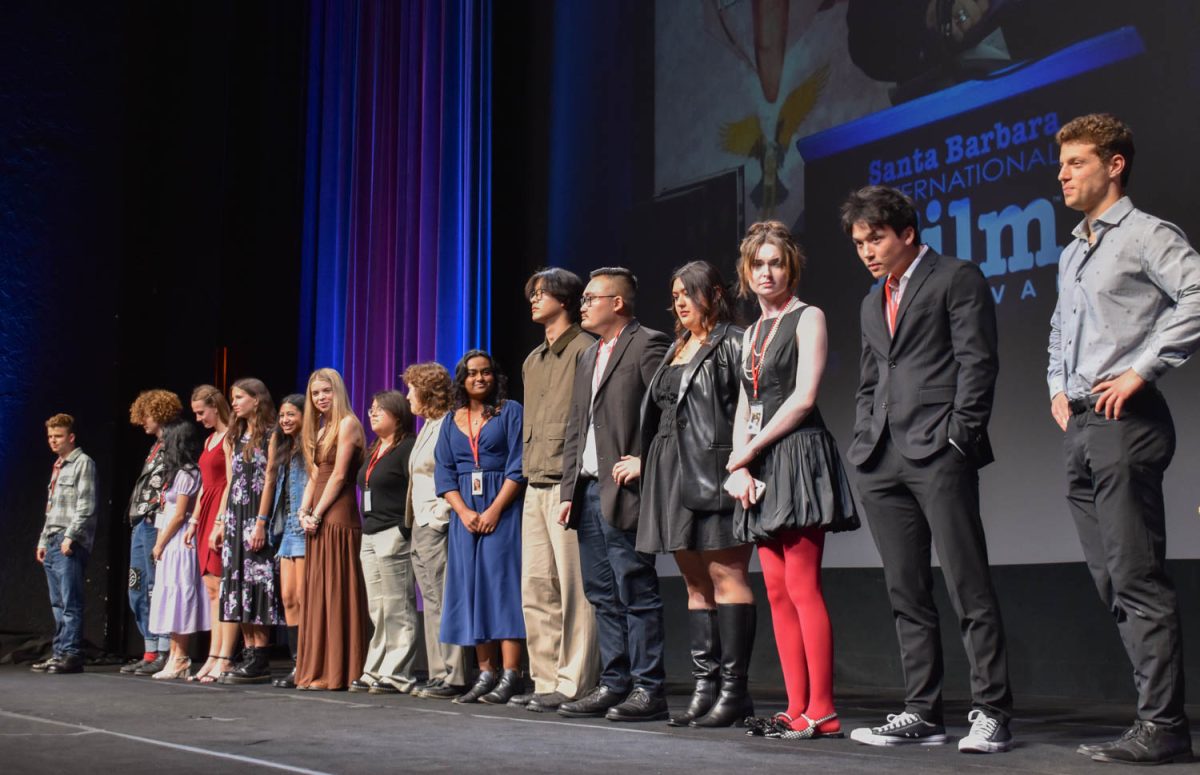On Saturday, Feb. 10, the Santa Barbara Film Festival held a panel discussion at the Arlington Theatre at 2 p.m. on upcoming international movies featuring four distinguished filmmakers from around the globe.
Roger Durling, the executive producer of the Film Festival, led the panel.
Durling began with a quote from Bong Joon Ho, director of “Parasite.”
“Once you overcome the one-inch tall barrier of subtitles, you will be introduced to many more amazing films.”
Each movie was presented with a short clip in order to preview it to the audience. Before the first clip, Durling made sure to inform the audience that J.A. Bayona, director of “Society of the Snow,” couldn’t attend in person due to an award ceremony. Bayona recorded a video explaining his absence while shedding light on his latest acclaimed Netflix movie.
Following Bayona’s introduction, the rest of the panel members were introduced, starting with Wim Wenders and Matteo Garrone. The screen then transitioned to an intense scene showing a commercial flight crashing into the frigid Andes Mountains.
Johnnie Burn, sound designer for “The Zone of Interest,” was introduced next. During the discussion, the documentary-style horrorscape surrounding a family living next to Auschwitz was talked about. A clip from the film featuring children in bunk beds, one playing with golden teeth, was also shown.
Durling listed the film’s five Oscar nominations from Best International Feature, Best Picture, Best Director, Best Sound, and Best International Feature. Burn was then given the floor.
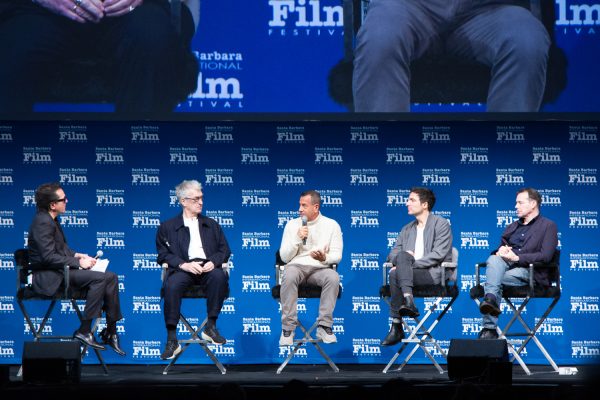
“The sound will be essential to the script,” Burn said, explaining that the atrocities are never seen, only heard. Burn later said he “needed to become an expert of what Auchiwitz sounded like” to capture the movie’s audio best.
Durling continued to talk with Ilker Çatak, who is the director of the German film “Teacher’s Lounge,” and nominee for Best Feature Film. He also won several awards at the Berlin International Film Festival.
A snippet of the film showcased a scene where a teacher introduces algebra through a Rubik’s Cube. Ilker Çatak explains that his relationship with the children’s actors was similar to “communism,” telling the kids, “I’m not your boss; you’re my colleagues.”
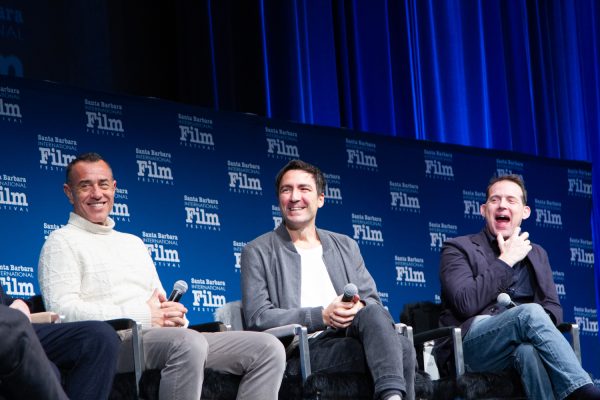
He went on to joke, explaining he would have conversations with the kids, even once saying, “We are all going to die one day; this film will last longer than you, so you better get this right.”
The discussion shifted to Italian cinema, featuring Matteo Garrone, director of “El Capitano.” Durling presented a clip portraying immigrants in a speeding truck in the desert.
“We tried to humanize this number and put the camera on the other side,” Garrone explained. In the middle of Garrone’s talk, he shouted out the actors in the crowd, explaining that some actors lived through these events.
Durling asked how Garrone would “Find a balance between realism, but also cinematic and poetic,” calling the film “A Modern Odyssey.”
Lastly, Wim Wenders, the German director of the Japanese film “Perfect Days,” was introduced with a commemoration from all panelists. Wenders immersed himself in foreign cultures for his film, Garrone remarked that Wedners was a massive inspiration before passing the floor to him.
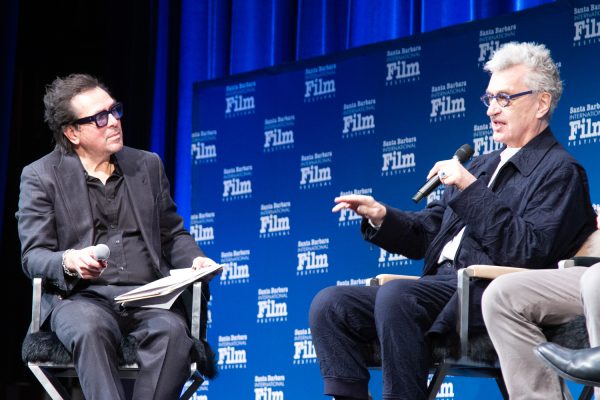
Durling called him a “legend,” showcasing a clip where the main character, Hirayama, talks to his niece. Once a businessman, Hirayama becomes a toilet cleaner, living a simple life with an approach to what Wenders explained was closest to the “gentlest craftsman.”


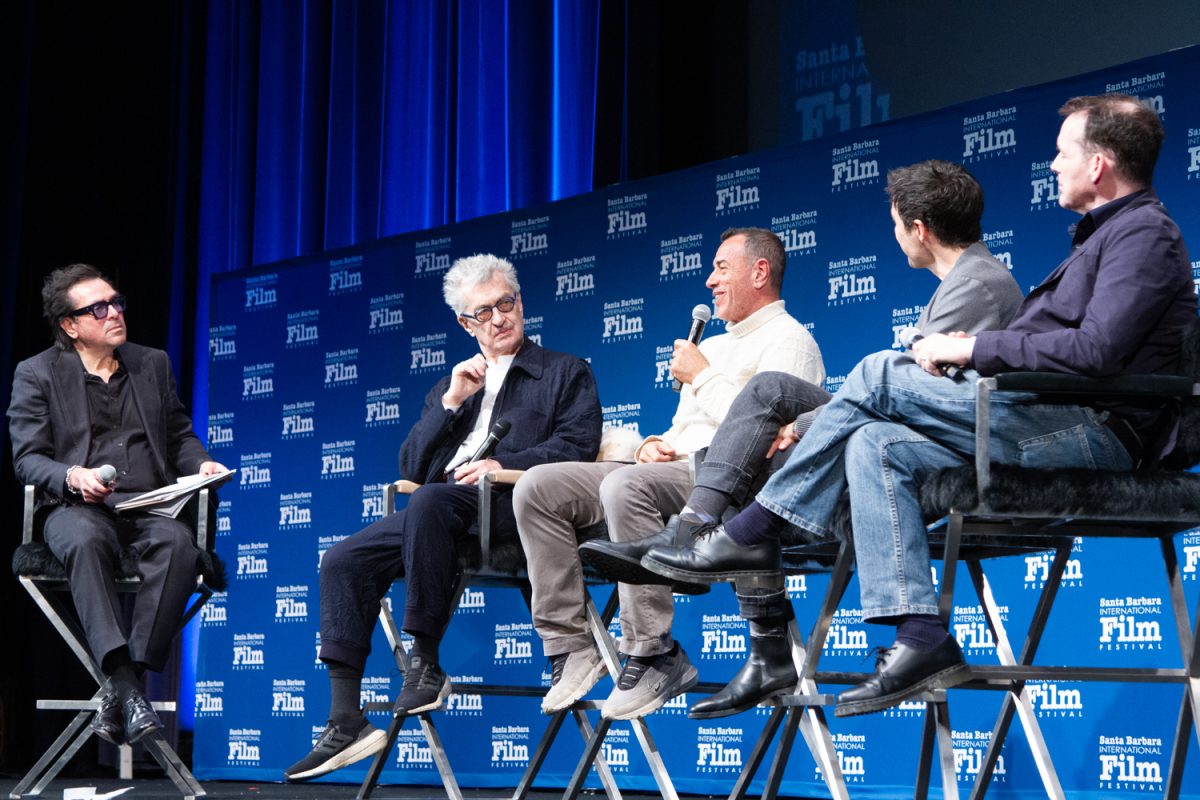
![Malia Hubbard admires the ceramic pieces created by students in Art 150, "Fundamentals of Ceramics" on April 10 in Santa Barbara, Calif. "I think [the gallery] is absolutely fabulous," Hubbard said. "Being able to see students work [is] so amazing."](https://www.thechannels.org/wp-content/uploads/2025/04/MGSStudentShow-1-1200x800.jpg)
